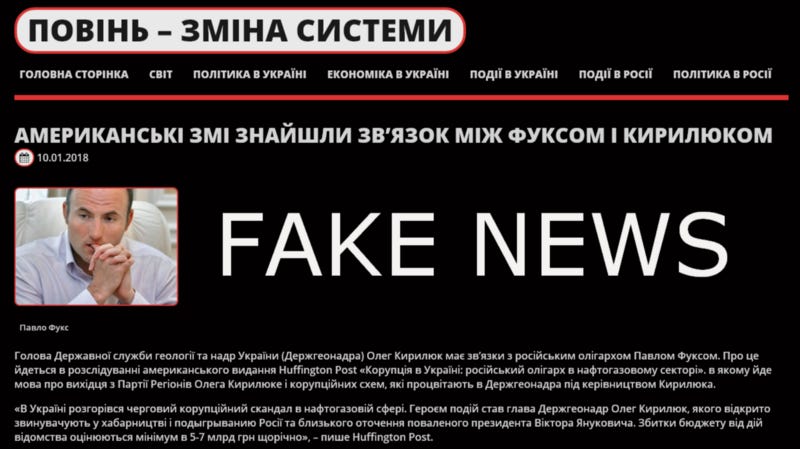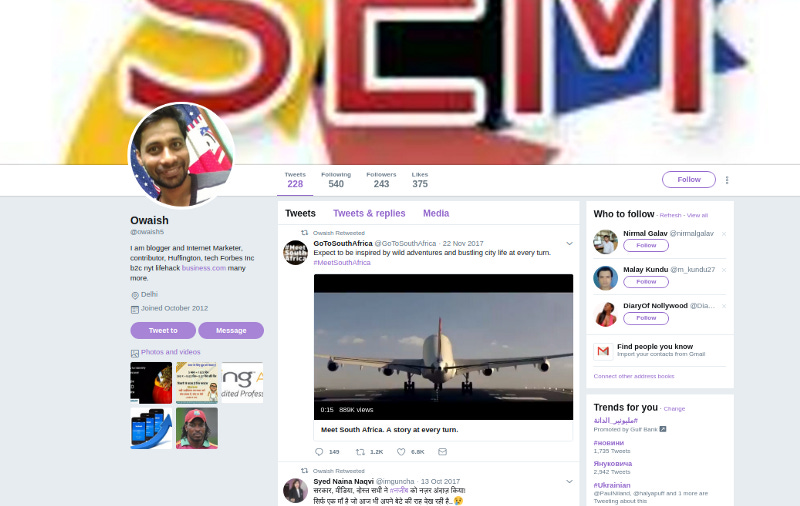Everyone’s favorite weapon
KYIV. The textbook smear campaign in Ukraine that unfolded just before Catholic Christmas was rebooted … on Orthodox Christmas.
Ukrainian lobbyists and public relations specialists on behalf of NJSC Naftogaz Ukraina were behind the previous crusade against Ukraine’s State Service for Geology and Mineral Resources (Gosgeonadra) — the agency tasked with regulating access to the country’s vast natural resource wealth.
Who, namely, decided to resume or co-opt the costly endeavor, which was relaunched on January 7, remains a mystery. Or maybe not.
The new improved smear campaign is based on one (1) make-believe English-language article and a laborious docudrama about corruption in Ukraine, titled “Exclusive: Dirty deal traced to three Ukrainian tycoons,” posted to the Internet. The so-called investigation had been extensively promoted on social media networks.
The day after the docudrama’s premiere, articles about Gosgeonadra began popping up like mushrooms on Ukrainian ezine news feeds. The .ua articles all conflated the so-called investigation appearing in the Huffington Post with the Al Jazeera docudrama. Like the previous PR campaign, .ua media articles were all standard, based on the simple algorithm: incindiary headlines, citations, top news platforms and widespread dissemination.
Resumption of the smear campaign against Gosgeonadra resumed the day after the the extensively advertised 50-minute Al Jazeera docudrama, in which Kharkiv-native Russian businessman Pavlo Fuchs plays a prominent role. This probably explains why his picture decorates the new batch of Russian/Ukrainian-language articles smearing Gosgeonadra (which was not even mentioned in the docudrama).

Ukraine is facing yet another corruption scandal in the oil & gas sector. This time around, it involves the acting head of the State Service of Geology and Mineral Resources of Ukraine (“Derzhgeonadra”) Mr. Oleh Kyryliuk, who is accused of bribery, favoritism and cronyism with Russia and a close circle of the fugitive Ukraine’s President Viktor Yanukovych. Estimated budget losses are at least $5–7 billion annually.

Influential U.S. media have again uncovered corruption among high government officials. Participants in the latest scandal again include Gosgeonadra chief Oleh Kyryliuk and his ties with Russian oligarch Pavlo Fuchs, according to the Huffington Post.
The Russian-language articles pictured above all cite an investigation authored by Ronnie Luke, who describes himself as a veteran digital reporter and journalist with ten years experience.

Luke lists his Twitter handle as @owaish5. He describes himself as a blogger, Internet marketer and contributor to the Huffington Post and Forbes. Luke’s most recent article before investigating high-level corruption in Ukraine was titled “Fighting for Pakistani Football — the story of Leisure League.”
Observations:
Resumption of the smear campaign against Gosgeonadra was timed to coincide with the airing of the Al Jazeera docudrama about corruption in Ukraine.
Budget. The fee for placing the Huffington Post article starts at $2,000, not including the fee charged by the placement agency. The 50-minute Al Jazeera docudrama cost at least $150,000 to produce, not including the network’s extensive pre-airing publicity campaign. The price for placing and disseminating fake news pieces linking Gosgeonadra to Pavlo Fuchs in hundreds of Ukrainian ezines is an estimated $15,000.
References to Trump. Al Jazeera’s docudrama features an interview with disgraced Ukrainian parliament deputy Oleksandr Onyshchenko, who talks about his good relationship with U.S. President Donald Trump. The previous smear campaign also linked Trump with shenanigans in Ukraine.
Most likely, the organizers of the revived smear campaign assumed they would remain incognito by using several media agency intermediaries. But the number of cutouts matters little when Trump is mentioned and U.S. intelligence agencies begin digging. The Huffington Post will likely retract the bogus article authored by Ronnie Luke, hopefully with an apology. As for the numerous inaccuracies in the Al Jazeera docudrama, Onyshchenko on January 11, 2017 reportedly announced plans to collect $20 million in damages from the network for defamation. Pavlo Fuchs has so far refrained from commenting about his alleged ties with Gosgeonadra, Onyshchenko or Trump.
Conclusions:
Gosgeonadra is currently engaged auditing licenses handed out during the previous 25 years. The task is not simple, because according to Ukrainian tradition, each new government tries to distribute as many licenses as possible to its supporters, regardless of their lack of experience in the industry and/or available capital to actually develop these deposits. There have been many governments in Ukraine over the last quarter of a century and the most attractive deposits of mineral resources have wound up in the pockets of persons close to country’s rulers.
The result achieved — formally licensed but not developed fields — as of 2017 contradicts what Washington requires from Kyiv, that is, to allow private companies from different countries to compete for rights to extract Ukraine’s gas, oil and mineral resources on a competitive basis.






